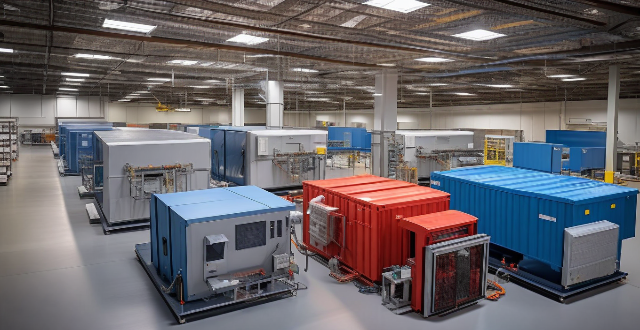The main challenges in developing advanced energy storage technologies include high cost, limited resource availability, performance metrics, safety concerns, environmental impact, regulatory compliance, and technological innovation. These challenges require significant investment in research and development, addressing supply chain issues, improving energy and power density, ensuring thermal and chemical stability, managing the environmental impact of battery production and disposal, adhering to international and local regulations, and continuously innovating to improve existing technologies and explore alternative solutions.

Main Challenges in Developing Advanced Energy Storage Technologies
1. High Cost
- Materials: The raw materials required for advanced energy storage systems, such as lithium, cobalt, and nickel, are expensive.
- Manufacturing Processes: Advanced manufacturing techniques needed to produce high-quality batteries can be costly.
- Research and Development: Continuous R&D is necessary to improve performance and safety, which requires significant investment.
2. Limited Resource Availability
- Scarcity of Raw Materials: Some critical materials for battery production, like lithium and cobalt, are geographically limited.
- Supply Chain Issues: Disruptions in the supply chain can impact the availability and cost of materials.
3. Performance Metrics
- Energy Density: Achieving higher energy density while maintaining other performance criteria is challenging.
- Power Density: Ensuring that batteries can deliver and absorb power quickly is essential for many applications.
- Cycle Life: Improving the number of charge-discharge cycles that a battery can undergo without significant degradation is crucial.
4. Safety Concerns
- Thermal Runaway: Batteries can overheat and catch fire if not properly managed.
- Chemical Stability: Ensuring that the chemicals used in batteries are stable over long periods is important.
- Mechanical Safety: Batteries must be designed to withstand physical stress without damage.
5. Environmental Impact
- Recycling Challenges: Recycling batteries is complex due to their composite nature and varying chemistries.
- Toxic Materials: Some components of batteries, like lead and cadmium, are toxic and require special handling.
- Carbon Footprint: The production process of some batteries has a significant environmental impact.
6. Regulatory Compliance
- International Standards: Meeting international safety and performance standards is necessary for global market acceptance.
- Local Regulations: Different countries have varying regulations that must be adhered to.
- Compatibility Issues: Ensuring compatibility with existing infrastructure and systems can be complex.
7. Technological Innovation
- Continuous Improvement: There is constant pressure to innovate and improve existing technologies.
- Alternative Technologies: Emerging technologies, such as solid-state batteries, may offer better performance but face their own set of challenges.
- Scalability: Scaling up from lab-scale prototypes to commercially viable products is a significant hurdle.
In conclusion, developing advanced energy storage technologies involves addressing a multitude of challenges ranging from cost and resource availability to performance metrics, safety concerns, environmental impact, regulatory compliance, and technological innovation. Overcoming these obstacles requires concerted efforts from industry leaders, researchers, policymakers, and investors alike.